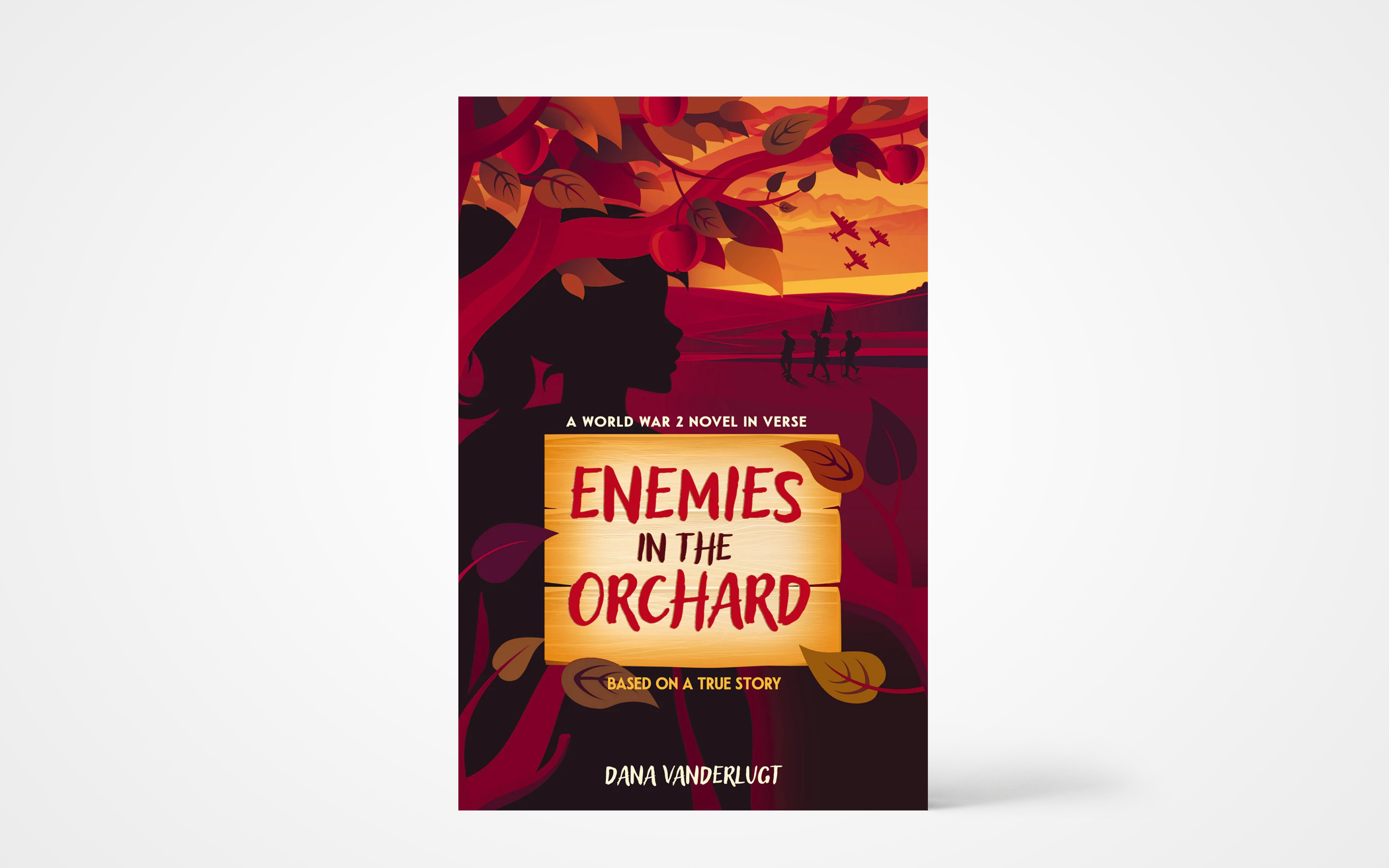Based on a true story, this World War II middle school novel written in free verse is narrated from the alternating perspectives of 13-year-old Claire DeBoer of Apeldoorn, Mich., and Karl Hartmann of Ulm, Germany, a boy her age.
In September 1944, Claire’s father, the owner of an apple orchard, is faced with a dilemma. He doesn’t have enough workers to harvest his apples since most local young men are fighting the Nazis in Europe and he has promised Claire’s mother he will not take his daughter out of school to work on the farm. Mr. DeBoer decides the only answer to his labor shortage is to hire German POWs brought to Michigan by presidential order under the Emergency Farm Labor Office and housed at a nearby prisoner of war labor camp. But Claire and her mother are unhappy with the prospect of enemies working in their orchard.
When Karl travels by train to Michigan, he begins to realize that the propaganda he heard since he was forced to join the Hitler Youth when he was 10 years old is nothing but lies. He thinks, “It’s hard to imagine / ever again raising my arm / in a Nazi salute / as we slip past silent homes, / homes we were assured were burning / with death and destruction, / filth and fury, / when instead I see / windows glowing lightly / and smoke rising lazily from woodstoves that warm / well-fed families / sleeping safely in their beds.”
When Claire watches the POWs arrive to harvest apples, she makes herself “picture their hearts black with hatred. … / I remind myself: / no matter how harmless they may look / standing here on our land, / they have surely carried evil / across the ocean with them, / inside them.”
As Claire and Karl’s paths cross, their initial suspicion and awkwardness around each other is replaced with the fragile, yet hopeful possibility of grace, understanding, and friendship. When tragedy strikes and all seems lost, even then Claire finds hope: “And I have no doubt / that where I’m from, / what I’ve lived through, / is planted deep inside me— / that all my life, / I’ll be drawn back here, / to the trees, / to the apples. / But I am also confident / that I am finding my own place on the branch, / a space to grow / where the sun will reach me.”
Though recommended for readers ages 9-12, this novel—deeply moving and filled with poignant insights into the destructive nature of war and its impact on children—is better suited to children ages 12 and older. (Zonderkidz)
About the Author
Sonya VanderVeen Feddema is a freelance writer and a member of Covenant CRC in St. Catharines, Ontario.

